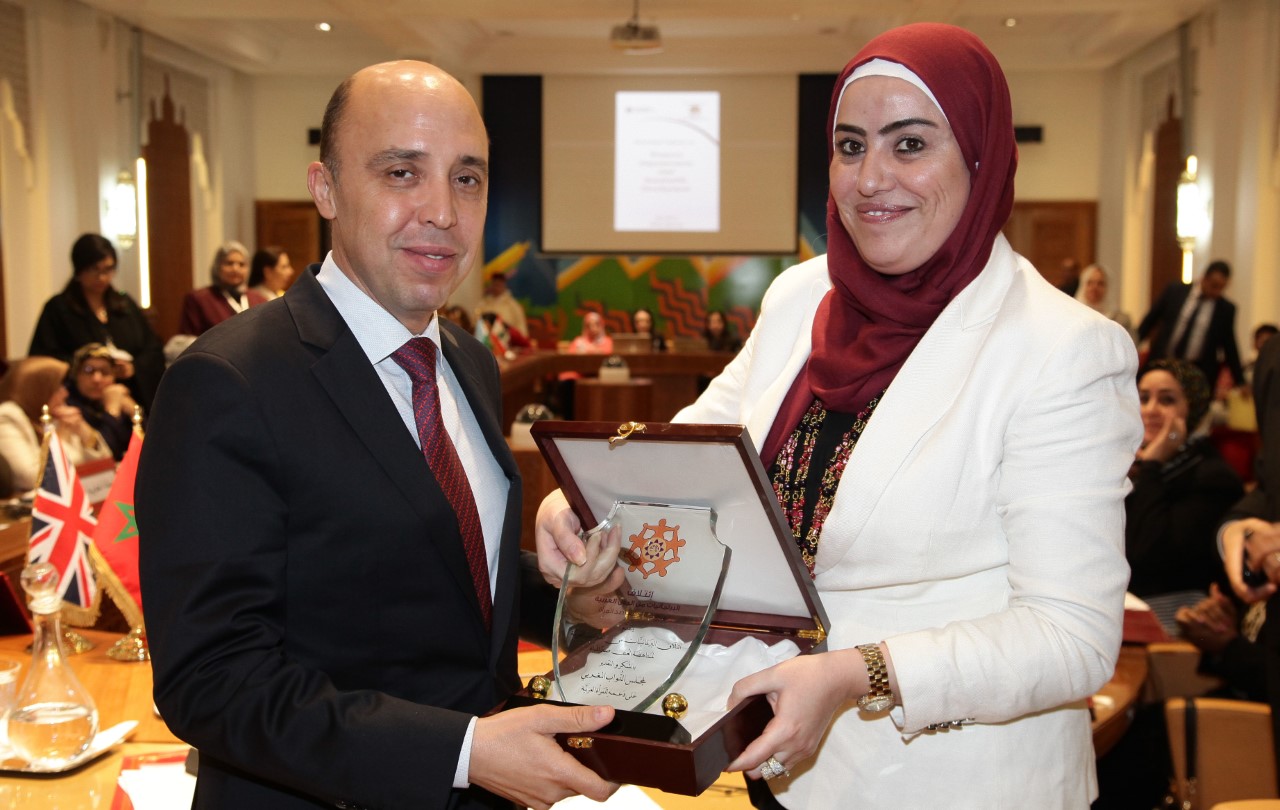In cooperation with Westminster Foundation for Democracy, The Parliament of Morocco hosted an International conference to celebrate International Women’s Day on March 8, 2016 to exchange expertise regarding the best practices that promote equality between men and Women, and to promote the role of women in sustainable development. The Kingdom of Morocco had celebrated the National Women Day on the 10th of October, and the Arab countries participated in the Arab Women Day on February, 1st, and in the 12th day of January they celebrated the Arab Day to Combat Violence against Women, which was launched by an initiative from the Coalition of Women MPs from Arab Countries to Combat Violence against Women.
The empowerment of women is a major condition to achieve sustainable development in countries. On January 2016 the execution of the Sustainable Development Goals (SDG) started officially, which was accredited by the leaders of the world in September 2015. The fifth goal of the SDG focuses on achieving equality between both genders and empowering women and girls. The Commission on the Status of Women, which reports to the Economic and Social Council in the UN considered empowering women and how this is related to sustainable development as one of the top priorities for the year 2016, and it considered that the review of the development achieved regarding women’s situation will focus on getting rid of violence of all sorts against women and girls. The studies of the International Bank points to the fact that the strategies of development that focuses on equality between both genders leads to an economic growth that is stronger than the strategies which are biased to one gender.
The participation of women has scored a progress in a large number of fields in the MENA region for the last years especially in education, and the participation in political decision making, but challenges and obstacles in many fields are still there.
The Moroccan constitution for the year 2011 is a committed constitution as it banned all sorts of discrimination against women and girls in a clear and tangible way in its permeable, where the state announced its commitment for building a democratic state ruled by righteousness, law, equality, equality of opportunities, social justice, and banning discrimination of all sorts based on gender, color, belief, culture, social or regional origin, language, disability or any other personal situation no matter what it is. The Moroccan parliament is working towards activating the articles of the constitution, and activating the role of the Parliament in initiating and executing a general policy that supports these articles. The Parliament established a temporal working group according to Article 49 of the internal regulations of the Moroccan Parliament. Article 49 is considered an exclusive article that distinguishes the Moroccan parliament, indicates the Parliament’s interest and support to the constitution, and activates article 19 of the constitution. This group supports and strengthens women gains in the field of equality and the equality of opportunities. As well, it combats discrimination of all sorts.
Delegations from different countries including Arab, African, and Asian Countries participated in the conference, which is considered an opportunity to browse what had been achieved and what are the challenges facing women on the international, regional, and national levels, in addition to the challenges in the economic, political, and social fields. The conference discussed for two days the role of the Parliaments in promoting the application of these goals on the national level, as well as the right ways to integrate women in the process of sustainable development through the legal methods available for them like legislations, and activating the parliamentary control over the government. The conference focused on three topics:
1. The Integration of women in the economic sector: the contribution of women in the economic sector, development, and welfare is still less than the possible level as this was indicated in the study of the International Monetary Fund. The international rate for women participation in labor is 50%. In the MENA region her participation is 25%. It varies from one country to another according to the information of the International Bank, and this makes the MENA region the lowest in the world compared to 65% in East Asia, which is considered the highest, and 59% in the countries that are members in Economic Cooperation Organization
2. The guarantee of women effective participation and having equal opportunities in the political life and decision making.
3. Combating all sorts of violence against women and girls.


 العربية
العربية
